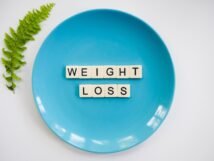Salads are often seen as a healthy option for a meal or a side dish. They are packed with nutrients, fiber, and vitamins, making them a great choice for those looking to maintain a healthy lifestyle. However, it's important to be mindful of the toppings and dressings that can turn a healthy salad into a calorie-laden and unhealthy meal. Common high-calorie and unhealthy salad toppings include creamy dressings, fried foods, high-fat cheeses, croutons, and sweetened dried fruits. In this article, we will explore healthier alternatives to these toppings and provide suggestions for creating a nutritious and delicious salad.
Key Takeaways
- Avoid high-calorie dressings and sauces
- Skip fried foods
- Beware of high-fat cheeses
- Say no to croutons and fried onions
- Be careful with nuts and seeds
Avoid High-Calorie Dressings and Sauces
One of the biggest culprits when it comes to turning a healthy salad into an unhealthy one is the dressing or sauce. Many store-bought dressings are loaded with added sugars, unhealthy fats, and preservatives. These can add unnecessary calories to your salad and negate the health benefits of the vegetables.
Instead of reaching for creamy dressings like ranch or Caesar, opt for healthier alternatives such as vinaigrettes made with olive oil and vinegar or lemon juice. These dressings are lower in calories and provide heart-healthy fats. You can also experiment with making your own dressings using ingredients like Greek yogurt, herbs, and spices for added flavor.
Skip the Fried Foods
While adding fried chicken or crispy bacon to your salad may seem like a tasty addition, it can quickly turn your healthy meal into a calorie bomb. Fried foods are high in unhealthy fats and can contribute to weight gain and other health issues.
Instead of fried proteins like chicken or bacon, opt for grilled or baked options. Grilled chicken breast or tofu can provide lean protein without the added unhealthy fats. You can also try adding roasted chickpeas or boiled eggs for a protein boost.
Beware of High-Fat Cheeses
Cheese is a popular topping for salads, but certain types can be high in fat and calories. Cheeses like blue cheese, feta, and cheddar can add a lot of flavor to your salad but can also contribute to weight gain and high cholesterol levels.
Instead of high-fat cheeses, try using lower-fat options like goat cheese or mozzarella. These cheeses still provide flavor and creaminess without the excessive calories. You can also experiment with adding small amounts of grated Parmesan or crumbled feta for a burst of flavor.
Say No to Croutons and Fried Onions
Croutons and fried onions are often used to add crunch to salads, but they can also add unnecessary calories and unhealthy fats. These toppings are typically made with white bread or deep-fried in oil, making them high in carbs and unhealthy fats.
Instead of croutons or fried onions, try adding healthier crunch options like toasted nuts or seeds. Almonds, walnuts, pumpkin seeds, or sunflower seeds can provide a satisfying crunch while also adding healthy fats and nutrients to your salad. You can also try adding sliced radishes or jicama for a refreshing crunch.
Be Careful with Nuts and Seeds

While nuts and seeds can be a healthy addition to your salad, it's important to be mindful of portion sizes. Nuts and seeds are high in calories and can quickly add up if you're not careful.
Instead of pouring a handful of nuts or seeds onto your salad, try measuring out a smaller portion or using them as a garnish rather than a main ingredient. This way, you can still enjoy the health benefits of these toppings without going overboard on calories.
Avoid Sweetened Dried Fruits
Dried fruits like cranberries or raisins are often used to add sweetness to salads, but they can be high in added sugars. These sugars can contribute to weight gain and other health issues when consumed in excess.
Instead of sweetened dried fruits, opt for fresh fruits like berries, sliced apples, or citrus segments. These fruits provide natural sweetness and are packed with vitamins and antioxidants. You can also try adding a small amount of dried fruit without added sugars, such as unsweetened dried cherries or apricots, for a burst of flavor.
Skip the Bacon and Processed Meats
Bacon and processed meats like ham or salami are often used to add flavor and protein to salads, but they can be high in unhealthy fats and sodium. These meats have been linked to an increased risk of heart disease and other health issues.
Instead of bacon or processed meats, try adding lean proteins like grilled chicken, shrimp, or tofu. These options provide protein without the excessive unhealthy fats and sodium. You can also experiment with adding beans or lentils for a plant-based protein option.
Beware of High-Sugar Salad Toppings
Certain salad toppings like candied nuts or dried cranberries can be high in added sugars. These added sugars can contribute to weight gain and other health issues when consumed in excess.
Instead of high-sugar toppings, try using healthier sweet options like fresh fruit or a small amount of honey or maple syrup. These natural sweeteners provide flavor without the excessive calories and added sugars.
Say No to Creamy Salad Dressings
Creamy dressings like ranch or blue cheese may be delicious, but they are often high in calories and unhealthy fats. These dressings can contribute to weight gain and other health issues when consumed in excess.
Instead of creamy dressings, opt for lighter options like balsamic vinaigrette or a simple olive oil and lemon juice dressing. These dressings provide flavor without the excessive calories and unhealthy fats. You can also experiment with using Greek yogurt as a base for creamy dressings, adding herbs and spices for added flavor.
Be Mindful of High-Carb Ingredients
Certain salad ingredients like croutons or dried fruits can be high in carbs. While carbs are an important part of a balanced diet, it's important to be mindful of portion sizes and choose lower-carb options if you're watching your carb intake.
Instead of high-carb ingredients, try using lower-carb options like roasted vegetables, avocado, or cucumber. These ingredients provide fiber and nutrients without the excessive carbs. You can also experiment with using lettuce wraps or collard greens as a base for your salad instead of traditional greens.
Choosing healthy salad toppings is essential for maintaining a nutritious and balanced diet. By avoiding high-calorie dressings and sauces, skipping fried foods, being mindful of high-fat cheeses, saying no to croutons and fried onions, being careful with nuts and seeds, avoiding sweetened dried fruits, skipping bacon and processed meats, being mindful of high-sugar salad toppings, saying no to creamy dressings, and being mindful of high-carb ingredients, you can create a delicious and nutritious salad that will nourish your body and support your overall health. Don't be afraid to experiment with new toppings and flavors to keep your salads interesting and enjoyable.
If you're looking to lose weight, it's important to know what not to put in your salad. While salads can be a healthy and nutritious option, certain ingredients can sabotage your weight loss goals. According to a recent article on the US Hwa Rang Kwan blog, it's best to avoid high-calorie dressings, croutons, and fried toppings in your salad. These additions can quickly add up in terms of calories and fat content. Instead, opt for lighter dressings, fresh vegetables, lean proteins, and healthy fats like avocado or nuts. For more tips on what to avoid in your salad for weight loss, check out the article here.
FAQs
What is the article about?
The article is about the foods that should be avoided while making a salad for weight loss.
Why is salad considered a healthy option for weight loss?
Salads are considered a healthy option for weight loss because they are low in calories, high in fiber, and packed with essential nutrients.
What are some foods that should not be included in a weight loss salad?
Some foods that should not be included in a weight loss salad are croutons, fried foods, processed meats, cheese, and creamy dressings.
Why should croutons be avoided in a weight loss salad?
Croutons should be avoided in a weight loss salad because they are high in calories and carbohydrates, which can hinder weight loss efforts.
Why should fried foods be avoided in a weight loss salad?
Fried foods should be avoided in a weight loss salad because they are high in calories, unhealthy fats, and sodium, which can lead to weight gain and other health problems.
Why should processed meats be avoided in a weight loss salad?
Processed meats should be avoided in a weight loss salad because they are high in sodium, unhealthy fats, and preservatives, which can increase the risk of heart disease and other health problems.
Why should cheese be avoided in a weight loss salad?
Cheese should be avoided in a weight loss salad because it is high in calories, saturated fat, and sodium, which can hinder weight loss efforts and increase the risk of heart disease.
Why should creamy dressings be avoided in a weight loss salad?
Creamy dressings should be avoided in a weight loss salad because they are high in calories, unhealthy fats, and sugar, which can lead to weight gain and other health problems.














